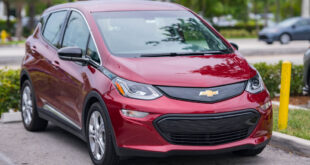Electric Cars for Commuters: Efficient and Eco-Friendly Travel Electric cars (EVs) are revolutionizing the way we commute, offering an eco-friendly and efficient alternative to traditional gasoline vehicles. This article will explore everything you need to know about electric cars for commuters, from their benefits and challenges to practical tips and frequently asked questions.
Why Electric Cars Are Perfect for Commuters
Electric cars have become a game-changer for daily commuters, thanks to their cost savings, environmental benefits, and seamless driving experience. Here’s why they stand out:
- Cost-Effective Operation: EVs are cheaper to run than gasoline cars due to lower energy costs and minimal maintenance.
- Environmentally Friendly: Electric vehicles produce zero tailpipe emissions, helping reduce air pollution and combat climate change.
- Smooth Driving Experience: EVs offer instant torque, silent operation, and advanced technology, ensuring a comfortable ride.
- Government Incentives: Many governments offer tax credits and subsidies for EV buyers, making them more affordable.
- Urban Suitability: Compact designs and regenerative braking make EVs ideal for stop-and-go city traffic.
Challenges of Using Electric Cars for Commuting
While EVs are highly advantageous, they do have some challenges:
- Limited Range: Many electric cars have a driving range of 150-300 miles, which may not suit long commutes.
- Charging Infrastructure: Access to reliable and fast charging stations can be limited in some areas.
- Higher Initial Costs: EVs often have a higher upfront cost compared to traditional cars.
- Battery Degradation: Over time, batteries lose their capacity, affecting range and performance.
Top Electric Cars for Commuters in 2025
Here are some of the best electric cars for daily commuting:
- Tesla Model 3: Offers a range of up to 353 miles and cutting-edge features like autopilot.
- Chevrolet Bolt EV: Known for its affordability and 259-mile range.
- Nissan Leaf: A compact option with advanced safety features and a 212-mile range.
- Hyundai Kona Electric: Provides 258 miles of range and a comfortable interior.
- Ford Mustang Mach-E: Combines sporty performance with a range of up to 312 miles.
10 Tips for Commuters Using Electric Cars
- Plan your routes to include charging stations.
- Charge your vehicle overnight to save on electricity costs.
- Use regenerative braking to improve efficiency.
- Avoid rapid acceleration to maximize battery life.
- Monitor tire pressure for optimal performance.
- Carry a portable charger for emergencies.
- Use preconditioning to warm or cool the car while it’s charging.
- Leverage government incentives to lower purchase costs.
- Join EV owner communities for tips and shared experiences.
- Regularly check your car’s software updates for improved features.
10 Frequently Asked Questions About Electric Cars for Commuters
- How long does it take to charge an electric car?
Charging times vary depending on the charger type, from 30 minutes (fast charger) to 12 hours (standard home outlet). - Are electric cars more expensive to maintain?
No, EVs have fewer moving parts, reducing maintenance costs. - Can electric cars handle long commutes?
Yes, many modern EVs offer sufficient range for daily commuting. - What happens if my battery runs out?
You’ll need roadside assistance or a portable charger to help you reach a nearby charging station. - How does cold weather affect EVs?
Cold weather can reduce battery efficiency, but preconditioning and insulation help mitigate this. - Are there enough charging stations?
The availability of charging stations varies by location, but infrastructure is rapidly expanding. - Do EVs perform well in traffic?
Yes, they excel in stop-and-go traffic due to regenerative braking and smooth acceleration. - Is it safe to charge an EV in the rain?
Yes, EV charging equipment is designed to be weatherproof and safe in the rain. - Can I charge an EV with solar panels?
Yes, solar panels can be a sustainable way to power your EV. - Are electric cars suitable for families?
Absolutely, with spacious interiors and advanced safety features, many EVs are family-friendly.
Conclusion
Electric cars for commuters are more than just a trend; they represent the future of urban mobility. With lower operational costs, environmental benefits, and an ever-expanding charging network, EVs are becoming a practical choice for many. While challenges such as limited range and initial costs exist, advancements in technology are addressing these issues.
By understanding the benefits, selecting the right model, and adopting smart driving habits, commuters can enjoy a seamless and sustainable travel experience. The transition to electric vehicles is not just an investment in convenience but a step toward a greener, more responsible future.
 oto car insurance used car repair
oto car insurance used car repair
